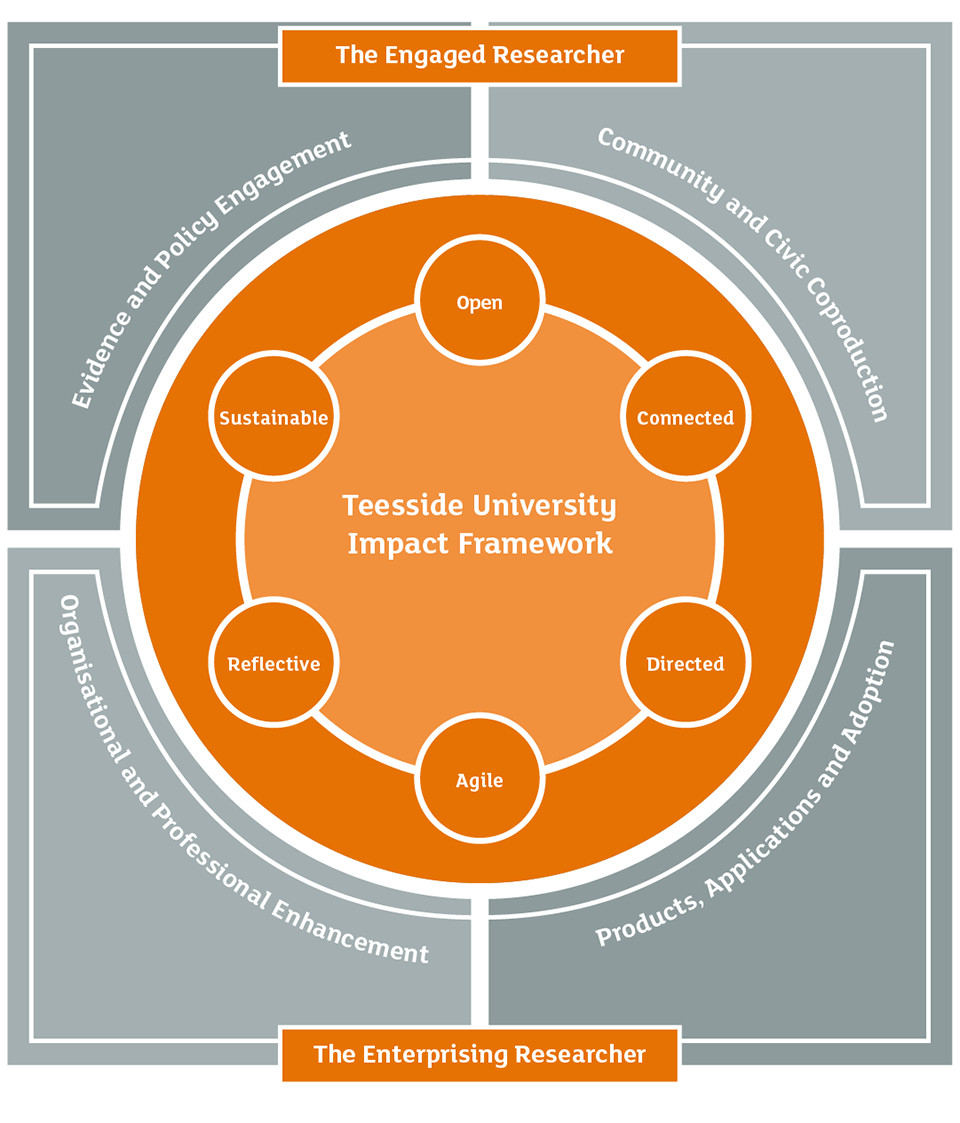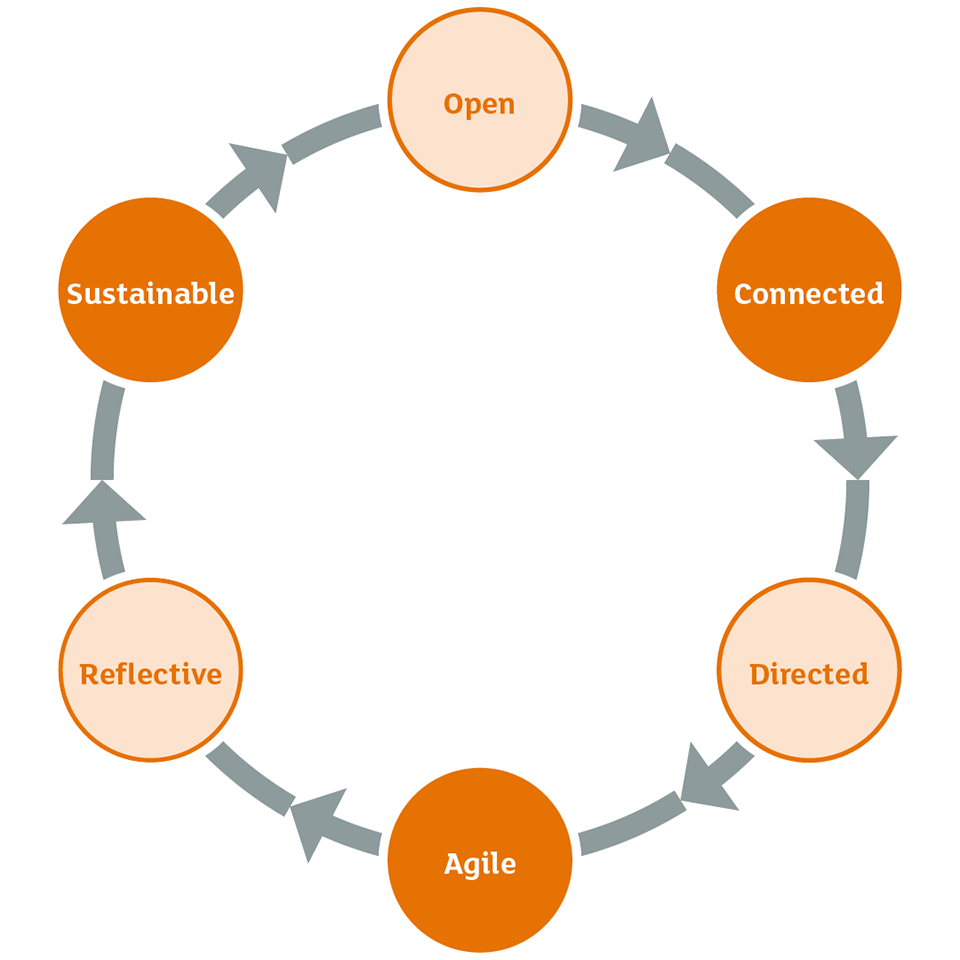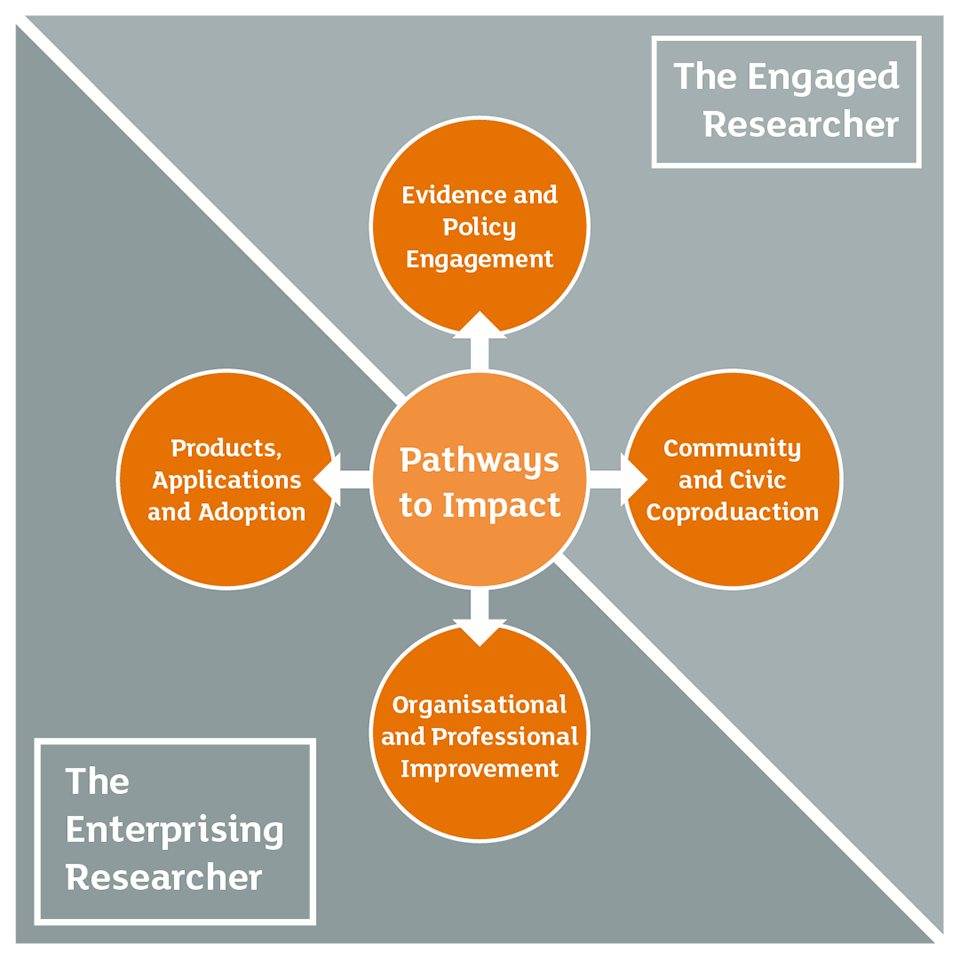Impact Framework
The Teesside University Impact Framework outlines the values and behaviours, capabilities and competencies, and mechanisms for advancing research impact at Teesside University. The framework seeks to ensure that our approach to impact is:
- underpinned by high quality research and research outputs
- demonstrable and evidence based
- strategic and significant
- ethical and engaged.

Our overarching approach to research impact centres on six core values and behaviours:
- Open: Our research data and outputs are open, accessible, and effectively shared ensuring our research has the greatest reach possible.
- Connected: Our research is team-based and engaged, involving stakeholders and beneficiaries at every stage of the research lifecycle.
- Directed: The potential impact of our research is discussed at the design stage with a clear theory of change mapped out.
- Agile: Flexibility and contingency are built into our research projects to ensure impact pathways are modified to changing contexts and unanticipated challenges.
- Reflective: Our approach to impact is reviewed and evaluated regularly to monitor the success of interventions, capture learning, and identity areas for improvement.
- Sustainable: Our research projects embed legacy and sustainability planning to ensure partnerships are fair and equitable.

Our responsible approach to research impact is delivered through four key mechanisms:
- evidence and policy engagement
- community and civic coproduction
- organisational and professional improvement
- products, applications, and adoptions.

Although there is inevitably overlap and intersections between these pathways, these pathways or mechanism for research impact are used to direct and focus our support structures and offer, which are broadly aligned two 'types' of researcher: the engaged researcher and the enterprising researcher. The compentencies and capabiltiies aligned to each of these 'types' and the aligned impact pathways are detailed below. Our researcher development programme combined with the TU learning and development offer provides training and support in these areas.
The Engaged Researcher
Intellectual abilities
- Coproduction methodologies
- Knowledge and Intellectual Abilities
- Citizen Science and Science Communication
- Coproduction Methodologies
- Understanding Open Research and Open Data
- Research Evaluation and Synthesis
Personal effectiveness
- Online Engagement
- Data Visualization
- Influence and Negotiation
- Change Management
- Vision, Values, and Engagement
- Public Speaking
Research governance and organisation
- Understanding Policymaking Processes
- Innovative Approaches to Public and Community Engagement
- Civic Engagement
- Funding to Support Civic, Community and Policy Engagement
- Fair and Equitable Partnership Working
Engagement, influence and impact
- Writing Reports and Briefings
- Engaging the Media
- Developing an Impact Strategy
- Designing a Theory for Change
- Evidencing and Articulating Social and Cultural Impact
- Ensuring Legacy and Sustainable Development
The Enterprising Researcher
Knowledge and intellectual abilities
- Responsible Research and Innovation
- Collaborative and Problem-Centered Research
- Market Research
- Entrepreneurship and Intrapreneurship
Personal effectiveness
- Opportunity Recognition
- Networking with Business
- Online Engagement
- Influence and Negotiation
- Change Management
- Vision, Values, and Engagement
Research governance and organisation
- Understanding Intellectual Property
- Social Innovation and Enterprise
- Fair and Equitable Partnership Working
- Developing a Business Case
- Funding to Support Business Engagement
Engagement, influence and impact
- Facilitating Successful Partnership and Collaborations
- Stakeholder Engagement
- Developing an Impact Strategy
- Designing a Theory for Change
- Evidencing and Articulating Social and Economic Impact
- Ensuring Legacy and Sustainable Development
